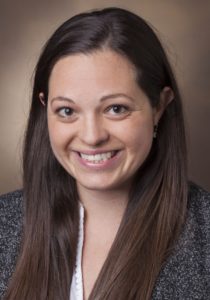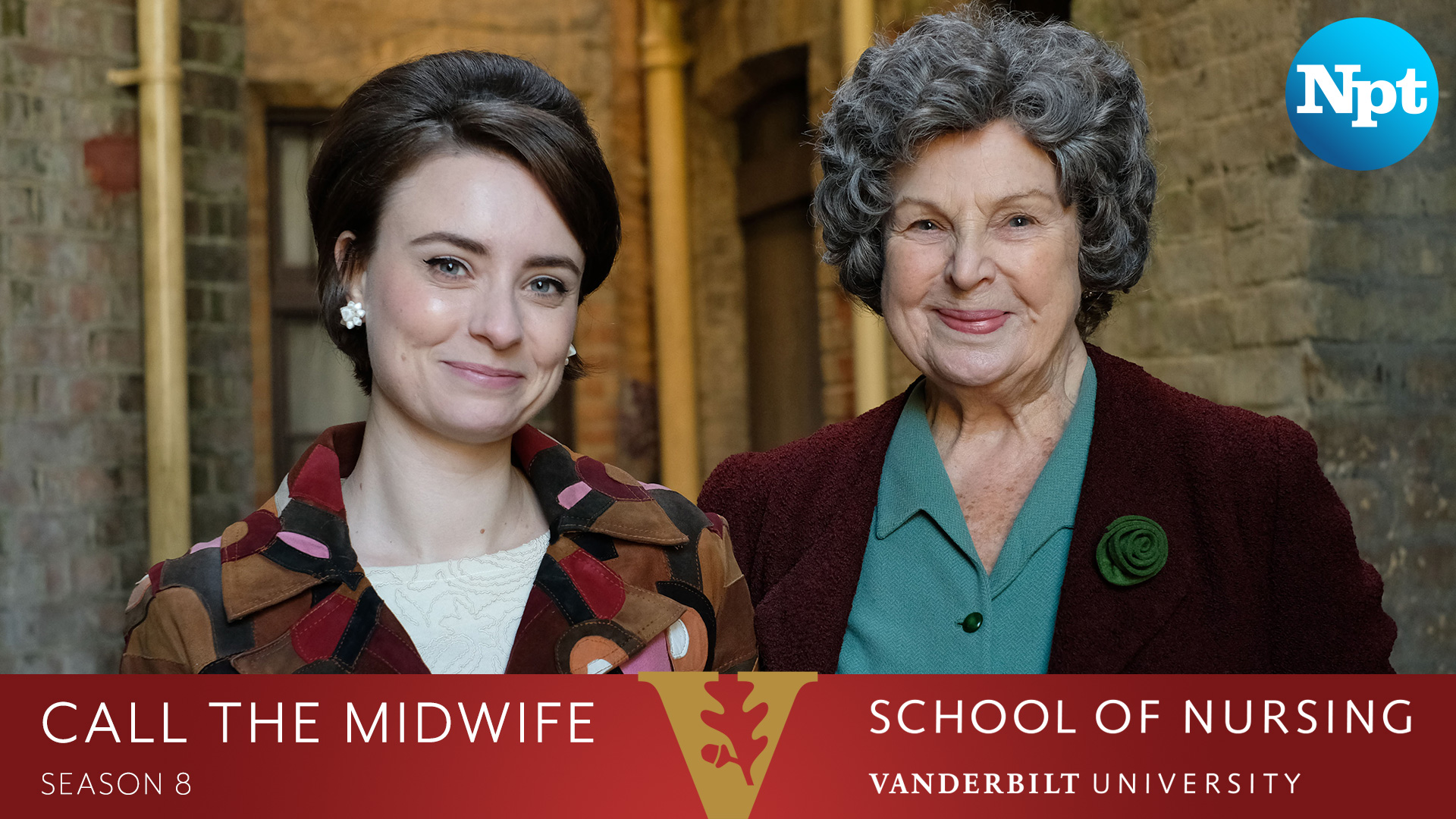Call the Midwife is back for its eighth season and so are the faculty of the Vanderbilt University School of Nursing with a weekly guest blog. Watch the show Sundays at 7 p.m. through May 19, then read our blog each Monday morning for historical and contemporary context about the previous night’s episode. SPOILER ALERT: Some posts may contain spoilers.
By Hannah Diaz, MSN, CNM
Vanderbilt Nurse-Midwives & Primary Care for Women at Melrose
Vanessa Redgrave’s soft, maternal voice-over brings me such comfort and is frequently my favorite part of each Call the Midwife episode. She wraps up this week’s show by talking about having a sense of belonging to our families or to the families we create, saying: “Sometimes simply belonging to each other is enough. And what really matters is not the struggle, but where we find our peace.” This sentiment was really touching after watching the sad and frustrating story of young teenage mother, Elaine (Hannah Rae).
We are introduced to the unmarried 17 year old when she presents to the clinic in labor. Elaine has obviously been concealing her pregnancy very well. I had the same thoughts that Lucille (Leonie Elliott) did, that the teen didn’t look pregnant as all! After a beautiful delivery of baby Sarah, Lucille’s suspicions are confirmed ‒ this is not Elaine’s first baby. It was infuriating to watch Elaine’s parents refuse to help or support her decision to keep the child. And it was heart wrenching to see the pain Elaine had gone through giving up her first baby and her utter determination to have another.
While there is far less negative stigma surrounding teenage pregnancy now than there was in 1964, that doesn’t mean it’s any easier. Teenage pregnancy leads to significant long-term social, emotional, health and economic problems not only to the young parents but to their children as well. For this reason, decreasing the rate of teenage pregnancy has long been a national health goal. The U.S. teen birth rate is currently at an all-time low due in large part to better sex education programs and improvements in contraceptive access and use.
According to the Centers for Disease Control and Prevention, a total of 194,377 babies were born to teenagers in 2017. Nearly one in five births to teenage mothers is a repeat birth, meaning that when teens have one pregnancy, they are far more likely to give birth again as a teenager. This is exactly what happened to Elaine. She never dealt with the emotional aspect of having a child at such a young age or the trauma of having to give the child away. She didn’t have access to counseling or education on the repercussions of conceiving again, nor did she have the option to talk to a midwife or other health care provider about contraception.
There are so many great resources for teenagers in 2019, but even more can be done to help prevent teenage pregnancy. It is also essential to provide resources to give pregnant teens adequate social, emotional, medical and academic support. Lucille gave Elaine the best resources she could: a safe place to rent, instructions to request government funding and the means to get a typing job. I wanted so badly for the character to get counseling, find a support group of other teen moms, finish school or as Vanessa Redgrave’s voice-over suggested ‒ find belonging and peace.
 Hannah Diaz, MSN, CNM, is a member of the Vanderbilt Nurse-Midwives & Primary Care for Women at Melrose, the clinical practice of the Vanderbilt University School of Nursing.
Hannah Diaz, MSN, CNM, is a member of the Vanderbilt Nurse-Midwives & Primary Care for Women at Melrose, the clinical practice of the Vanderbilt University School of Nursing.
